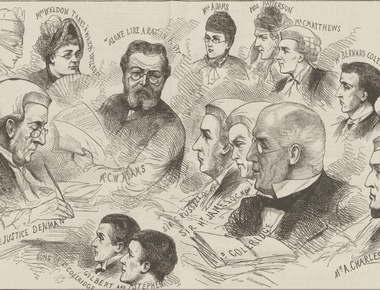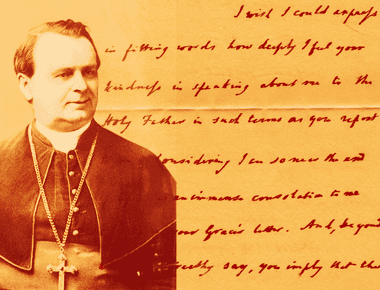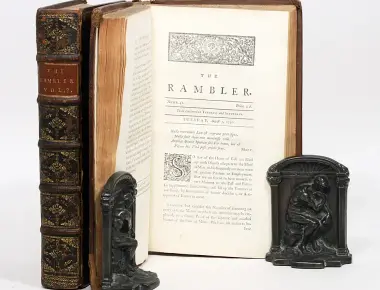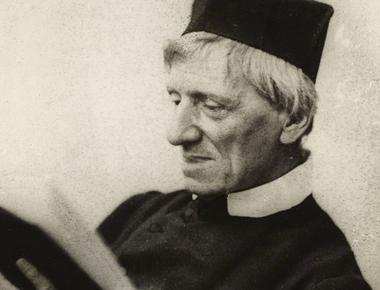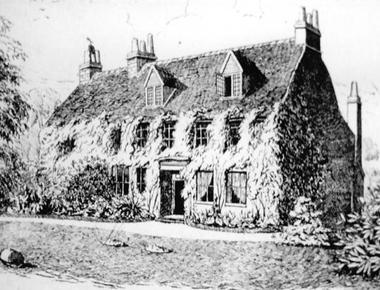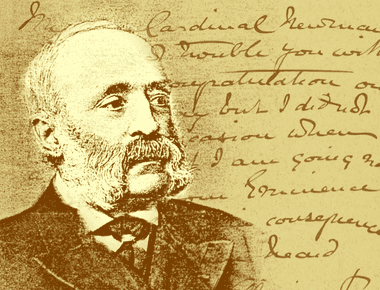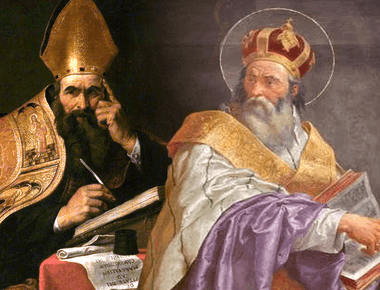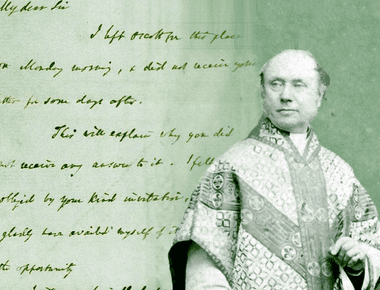
Teaching Newman to undergraduates has yielded unexpected research rewards. Thanks in part to students in my St. John Henry Newman Seminar, the NINS Digital Collections has recently added a previously unknown letter, written 8 November 1845 from Newman to Rev. Joseph Oldknow, Perpetual Curate of Holy Trinity, Bordesley, Birmingham. My students and I may have been the first to examine the letter since its donation several years ago to the St. John the Evangelist Library of Christendom College, by William H. Marshner, Professor Emeritus of Theology. When the Director of the Library, Andrew V. Armstrong, learned of the course, he let me know about the manuscript and suggested that I examine it.



